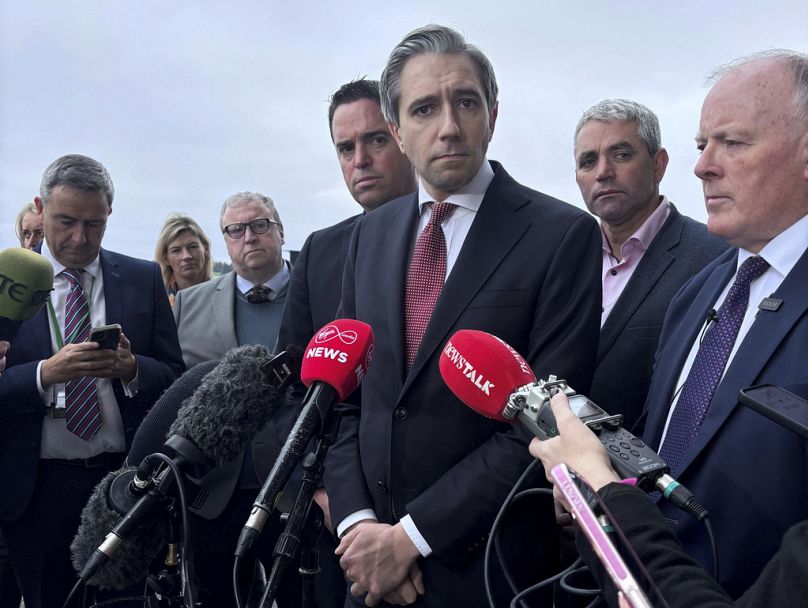Taoiseach Simon Harris said "the time is now right to ask the Irish people to give a new mandate," as he confirmed that a general election would be held in Ireland on Friday, 29 November.
Ireland’s Prime Minister, or Taoiseach, Simon Harris triggered the start of the 2024 general election after he confirmed on Friday that he requested a dissolution of the current Irish parliament, or Dáil.
In a short address in Dublin, Harris thanked his colleague in the centre-right Fine Gael party as well as coalition partners Fianna Fáil and the Greens, but acknowledged they “did not agree on every issue.”
Wishing all candidates good luck, he called for a safe and respectful campaign and urged all Irish citizens to vote on 29 November.
“Use your voice. That’s how this country works, how we listen. It’s how we act on your behalf,” he said.
Ireland’s president must now approve Harris’ request to dissolve the Dáil, though this is only a formality.
The country had been on election footing for weeks, with local media reporting rumours of a planned general election announcement since October.
Harris, 37, took over as head of Ireland’s three-party coalition government in April, a month after his longstanding predecessor Leo Varadkar’s surprise resignation.
He had previously served as higher education minister in Varadkar’s government and was the only candidate to replace him as head of Fine Gael.
Ireland is in the middle of a housing and cost-of-living crisis – two topics that are guaranteed to be major concerns for voters as campaigning begins in earnest.
Another key topic expected to come up in the forthcoming weeks will be the impact of Donald Trump’s recent re-election to US presidency and its impact on the Irish economy, a country which is heavily reliant on US tech companies for employment.
The Taoiseach had until the end of the government’s five-year term in March to call an election, but Harris elected to appeal to the Irish public at the end of the month in the face of opposition party Sinn Féin’s dramatic decline in popularity.
An integral part of Sinn Féin’s political identity has been the pursuit of a united Ireland.
Many speculated that a referendum on a united Ireland was inevitable in the next five years after they became the biggest political party in Northern Ireland and came within touching distance of forming a government south of the border.
As anti-immigrant anger surges in the country, the leftist nationalist party has struggled to claw back voters as they find themselves out of step with a core constituency.












